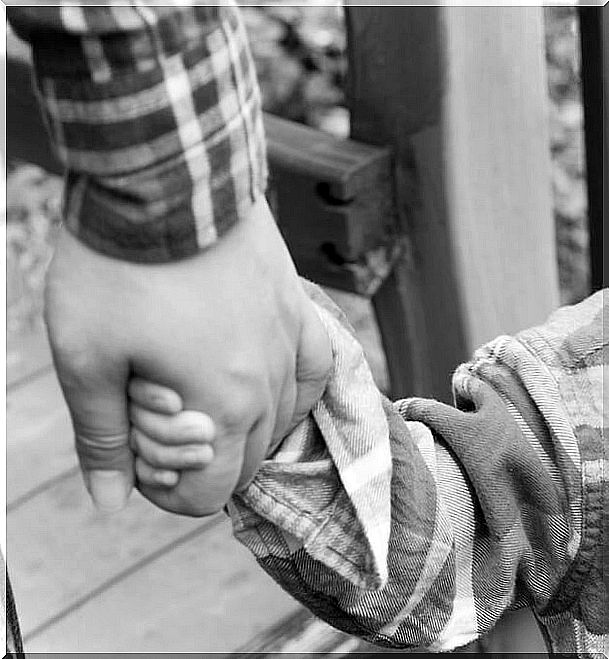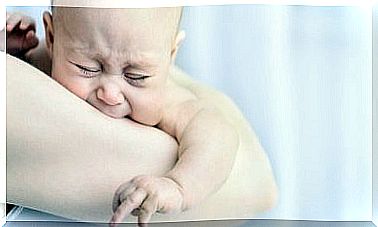Absent Fathers: Five Traits

This article covers the key traits of absent fathers. We also discuss how their absence affects the child’s well-being. A father’s love, support, authority and example are crucial and irreplaceable.
Growing up without a father creates emotional wounds that will last long after childhood. These wounds will affect emotions, relationships, personality and self-confidence.
It is wrong for fathers to be given a secondary role in the family and education. In general, their role in parenting comes down to providing financial support. However, we believe that there is an urgent need to look at fathers in a different way.
Some fathers are not there
A study by the National Fatherhood Initiative points to the negative impacts on children with absent fathers. Growing up without a father affects relationships, economic factors and even the physical and mental health of the child.
This organization believes that this concerns the public interest. It is a problem that costs society more than 100 billion euros annually for social and educational programs.
Know that some fathers are absent due to certain factors that prevent them from being a part of their child’s life. That doesn’t always mean they don’t want to be there.
For example, they may have a bad relationship with their ex, be in the military or often travel for work.
Mothers and society should give fathers a greater role in raising children. This would benefit fatherhood through responsibility and compromise.
It is important that fathers begin to see themselves as essential to the development of the child. Because they are essential.

5 Traits of Absent Fathers
workaholic
They are there but they are not there either. Usually they work up to 12 hours a day and spend only a few minutes with their children.
In the morning they say goodbye to their children when they leave for school. They only come home when the children are already asleep. So even in the evening these men cannot talk or play with their children.
This type of absent fathers is common today. Material desires and professional ambition threaten the family and their relationship with the children.
Balance is key. Know that the quality of the time you spend can be more important than the quantity.
If you recognize this, try to compensate for your absence by being virtually present.
Call, send an email or a text message. Be active on social media with your family. This way you will still be able to keep in touch.
Try to completely cut yourself off from work in the evenings and on weekends . So turn off your mobile and computer and dedicate your 100% attention to your children and your family.
Lack of empathy
A father who falls emotionally or physically is one who lacks empathy. This person has very little connection with children and with the people around him. These men are self-centered and their relationships with other people never go very deep.
This type of father is generally not with his children because he chooses to. The paternity is unknown to him and for him means nothing but compromise.
They mainly think about themselves. It is impossible to put yourself in the shoes of their partner or children.
These kinds of people run away from the responsibilities of parenthood. They have a very weak emotional connection with their children. According to them, the mother is responsible for the upbringing.

Emotional immaturity
This trait is also related to a lack of empathy. This is another reason why a father can be absent and unenthusiastic about parenthood.
Emotionally immature people have trouble maintaining relationships. This is because they are afraid of obligations and thus ruin their relationships.
Emotional immaturity can be the result of childhood or puberty trauma. They may be mimicking the disinterested role of their own father.
Emotional maturity means being happy and trustworthy and pursuing healthy and balanced relationships. However, these are people who are emotionally immature and feel fear of growing.
They live as an adolescent and have trouble expressing their emotions.
irresponsibility
This is a father who pays no attention to his child’s development. These men are not there for their child when she is sick. They are not there when there is something to celebrate. They simply aren’t there.
This type of man ignores the fact that he is a father. And sometimes he even wonders if he is the father. He tries to avoid the responsibility of raising a child.
egocentric
A self-centered father does not think about his children. Instead, he makes plans for a life without children. So he sees other things as more important. Think of his family, going out with his friends or working on projects.









